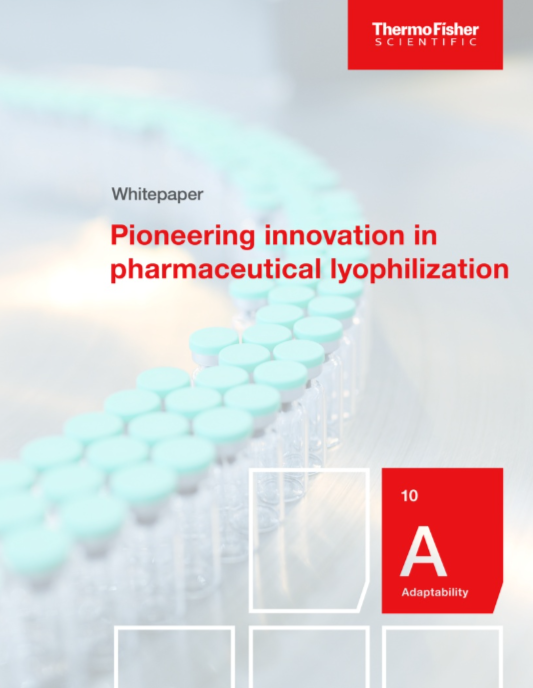Lyophilization, also known as freeze-drying, is becoming increasingly vital in pharmaceutical manufacturing, especially for ensuring the stability and viability of sensitive biopharmaceuticals and vaccines. These complex formulations are essential in modern healthcare, and the industry must maintain their efficacy during storage and distribution without relying heavily on cold chain logistics.
The lyophilization process involves three meticulously controlled stages — freezing, primary drying, and secondary drying — that require precision to preserve the final product's integrity. Despite its advantages, the technique poses significant challenges, including high energy consumption, the need for sophisticated equipment, and specialized expertise to manage the freeze-drying cycle effectively.
Additionally, as the demand for biopharmaceuticals grows, the industry must efficiently scale these processes while complying with regulatory standards.
This whitepaper covers these important topics and explores lyophilization as a strategic solution to these challenges, offering insights into the following areas:
- The crucial role of lyophilization in improving the stability and accessibility of sensitive pharmaceutical products
- A detailed analysis of the three lyophilization process stages, including freezing, primary drying, and secondary drying
- The growing demand for lyophilization services provided by contract development and manufacturing organizations
- The importance of strategic partnerships with CDMOs in advancing drug formulation and optimizing lyophilization processes


